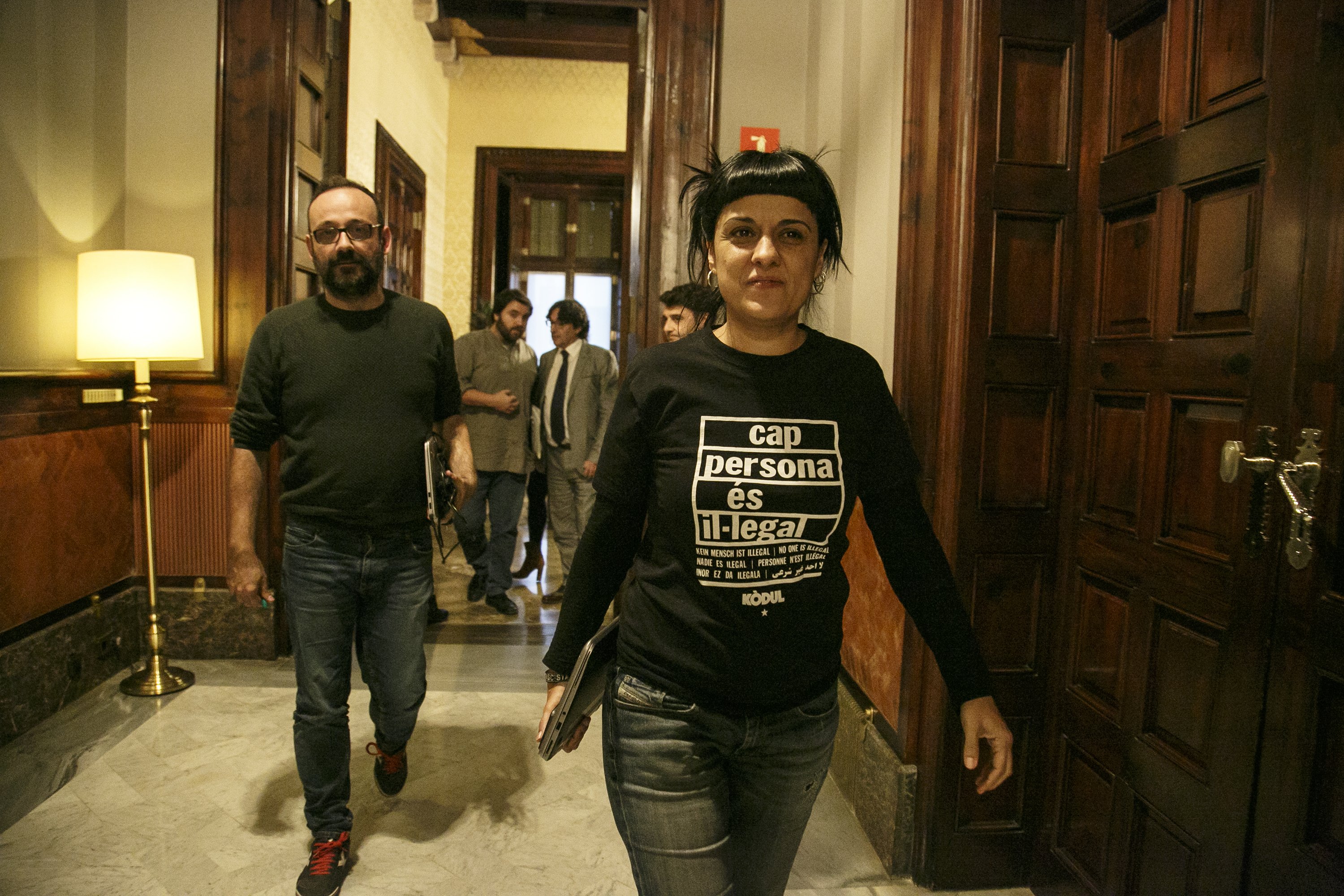The Popular Unity Candidacy (CUP) has argued that the 'Law of Legal Transience' that it promotes with JxSí (Together for Yes) must be approved before the referendum of 1st October, and it has assured that if JxSí does not want to approve it before that date, they are prepared to process it through the Catalan Parliament alone.
"If there are difficulties in entering it for registry or doing so through a joint procedure, then we're prepared to register this law exclusively from the CUP," explained the deputy, Benet Salellas, in an interview with Europa Press.
This scenario arises because at the heart of JxSí, there is a disparity in criteria about what to do with the law: some are in favour of approving it before 1st October, whilst others sustain that it can only be approved if 'yes' wins in the referendum - since it is the law that carries out the independence.
Salellas points out that it is "a debate that JxSí has internally and that it is JxSí that has to resolve the question", but he warns that the CUP is prepared to process it if the other pro-independence group of the Chamber does not reach an internal consensus.
The Law of Legal Transience is the one that plans the transition of Catalonia from its current legal code to one of Catalan, and the CUP considers that it must be approved before the referendum so that the Catalans know the consequences of a 'yes' victory, and so that it is also clear that this referendum "cannot be another one like the '9-N'" consultation vote.
"For us, and for an important part of the independence movement, the transience law must be approved before 1st October because the transience law is what makes the referendum binding," said the deputy.
The consequences of the referendum
The CUP fears, on the one hand, that if the law is not passed before the referendum, a possible 'yes' victory opens the debate of "what the consequences of the referendum are", whilst with the law approved, the consequences would be obvious: independence.
They say that approving the law before 1st October will be clarifying "the question being put to the whole country, of what happens if you vote yes and what happens if you vote no; and if you do not want this to go ahead, then you should go there to vote no".
"This law is an instrument of political determination, it is an instrument of democratic clarity and it is an instrument that gives security to the whole of the independence movement in order to know what will happen the day after 1st October," he said.
No news about the ballot boxes
Asked whether the government has the ballot boxes to hold the referendum, Salellas explained that nothing had been communicated to the CUP about the matter, but he considers that the government should have them in hand because the state will be increasing the impediments against the 1st October vote.
"There will be a certain acceleration of the context, of the political situation and, therefore, everything that has not already been done, will be increasingly difficult to do," the deputy said, adding that the CUP is convinced that the Catalan government is advancing in the preparations of the vote.
There is a census (but secret)
Among the preparations to be carried out by the government is the controversial drafting of a census, and Salellas says: "They have told us they have a census and they have also told us where it comes from - but I will not make it public. It's dramatic, but that's the way it is."
Salellas claims that the CUP has supervised the Catalan government with regards to holding the referendum, asking, controlling and overseeing the work of the government - and the result of the information received from the Executive "is why the government exists today".
"If we'd seen that the referendum was not moving in the right direction, we had the obligation to denounce it and bring down this government. We have not done so because the government has given us the information that it is unfolding," he said.
He admits that the secrecy that the CUP maintains about the matter "is neither healthy nor democratic, and nor does it reflect normal political logic", but he argues that it is essential in the face of the state's rejection of the consultation, as well as the investigations currently being carried out, such as those by the Civil Guard.
The role of the Mossos
On the role of the Mossos d'Esquadra (the police force of Catalonia) on 1st October, Salellas trusts that they will ensure the security of election day and nothing more: "It is hard to imagine any public body doing an anti-democratic act such as removing ballot boxes, or sealing up schools and polling stations."
Nor does he consider that a judge can stop the vote, since he cannot imagine "that a person or a court, be it a judge of court 12 or 16, can wipe out the institutional work of a Parliament or a Government, around which there is such a broad social majority."

